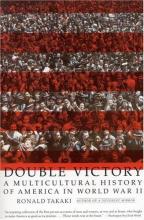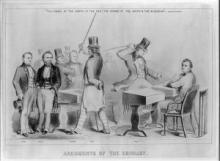Double Victory
Published on Wed, 03/28/2012
Guest Post: Rusty Annis, Belchertown, Massachusetts, Teacher
World War II marked a watershed for American identity, equality and opportunity. Advocates called bastions of racism into question and for the first time effectively challenged many aspects of discrimination. The war gave minorities (including women) a chance to contribute in a noticeable way to American society. It was not an easy transition. Horrifying reactions occurred.
Axis propagandists used America racism to knock America off its high horse of moral superiority. An excellent book utilizing personal accounts from this time period is Double Victory, by Professor Ronald Takaki (Back Bay Books, Little, Brown and Co. New York). Takaki gives an overview of many ethnic stories of striving for American identity. The phrase double victory refers to a February 7, 1942 letter to the editor of the Pittsburgh Courier from James G. Thompson, encouraging equality for people of color in the United States. “The first V for victory over our enemies from without, the second V for victory over our enemies from within.” Link to a wiki on the impact of the Double Victory Campaign. (The "Double V for Victory" button by the page title leads to a unique large photo of a Double V rally.)


